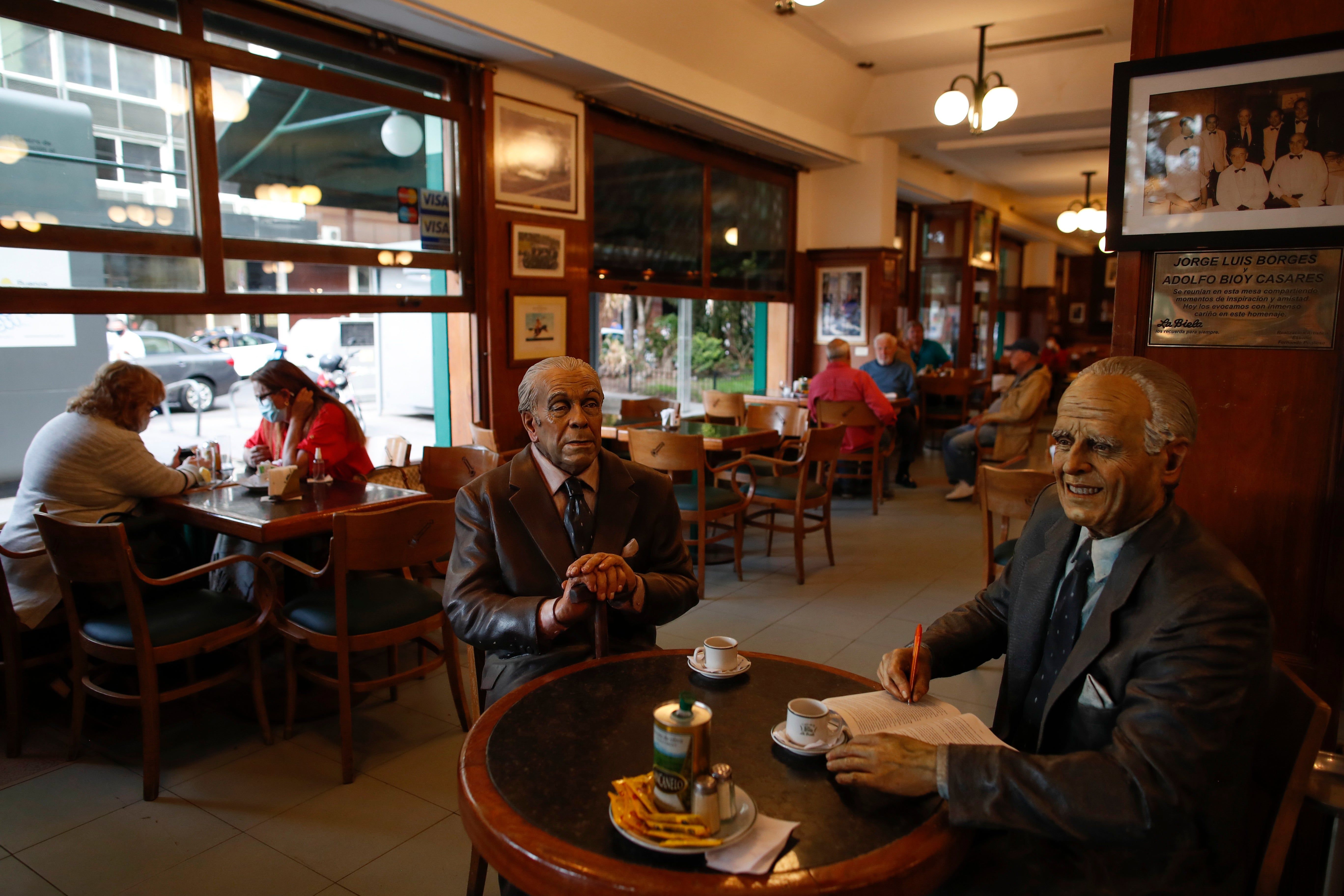Buenos Aires' cafe culture fighing to survive amid pandemic
Buenos Aires has long had a thriving cafe scene and its many historic cafes and bars are officially recognized as “cafes notables” for their contribution to the capital’s culture

Just nine months ago, a line would form each day outside Buenos Aires’ bustling Cafe Tortoni, people trying to get in to drink a cortado coffee in the Argentine Belle Epoque halls once frequented by writers and artists such as Jorge Luis Borges, Carlos Gardel and Federico García Lorca.
Now a few diners sit at tables set up on the sidewalk in front of the iconic cafe founded in 1858, and a handful more sit at socially distanced tables attended by two waiters carrying disinfectant sprays on trays. The usual roar of laughter, debate and lively conversation is eerily missing.
“This year has been very hard. ... Before the café was always full, you had to wait to get in,” said Nicolas Prado, one of the managers of Cafe Tortoni, located in the center the Argentine capital, which is known for its European flair.
Brenos Aires has long had a thriving cafe scene and its many historic cafes/bars — officially recognized as “cafes notables” for their contribution to the capital’s culture — are meeting points and tourist draws with their century-old architecture and nostalgia-soaked decor. Passing through their doors can feel like stepping back in time. But they are struggling to survive what their owners say is the worst crisis in their history, caused by the coronavirus pandemic and lockdown measures on top of a deep, years-long recession.
At least four of the city’s more than 70 officially recognized “cafes notables” have already closed since a quarantine was announced on March 20 and others are hanging by a thread after months of revenues near zero. Overall, about 2,000 bars, restaurants and cafés have closed in Argentina’s capital since the lockdown.
“There is a saying in the business that goes: ‘People bring people,’ and right now there are no people anywhere,” Prado said, referring to the tourists, residents and office workers who frequented the establishment.
The Tortoni still preserves its stained-glass ceiling, wooden walls and marble-topped tables where people used to play dominoes. Its salons held tango shows.
Singer and songwriting Carlos Gardel — the most important figure in the history of tango — had a table permanently reserved near a window. Argentine writers and novelists such as Borges and Julio Cortázar held literary meetings in its basement. Spanish poet García Llorca visited the Tortoni during his stays in Buenos Aires
In order to overcome the pandemic, some cafe notable owners are trying to draw customers with outdoor tables and distancing authorized by officials. Other cafes are delivering meals and even trying to sell mugs or souvenirs online.
But their hopes are being dashed by the reality that very few tourists are arriving in Argentina, which has been hard hit by the pandemic and has imposed tough lockdown measures. The South American country has confirmed more than 1.4 million novel coronavirus cases and about 39,000 deaths.
Argentina’s economy is expected to contract by 12% this year due to the pandemic and the prolonged recession gripping the country.
Pablo Durán, a member of the Commission of Cafes Notables, said managers and owners have turned to their savings and gone into debt to preserve their businesses. What they fear now is the expected end in January of federal aid they have been receiving to pay part of the salaries of their employees.
“You have to adjust. It’s a war economy,” said Martín Paesch, a manager of the historic El Federal bar, which has served as a setting in classic Argentine movies. “People’s incomes have fallen dramatically, and their enjoyment of leisure has decreased.”
Pandemic measures have forced El Federal to reduce its previous capacity of 80 customers to 15, and Paesch said that November’s revenue was 85% less than in the same month last year.
Engineer Ernesto Frías recently returned to El Federal for the first time in months.
“I like working here,” said Frías, 61, as he pecked at his computer’s keyboard while admiring the decor of the old wooden bar.
Bookmark popover
Removed from bookmarks